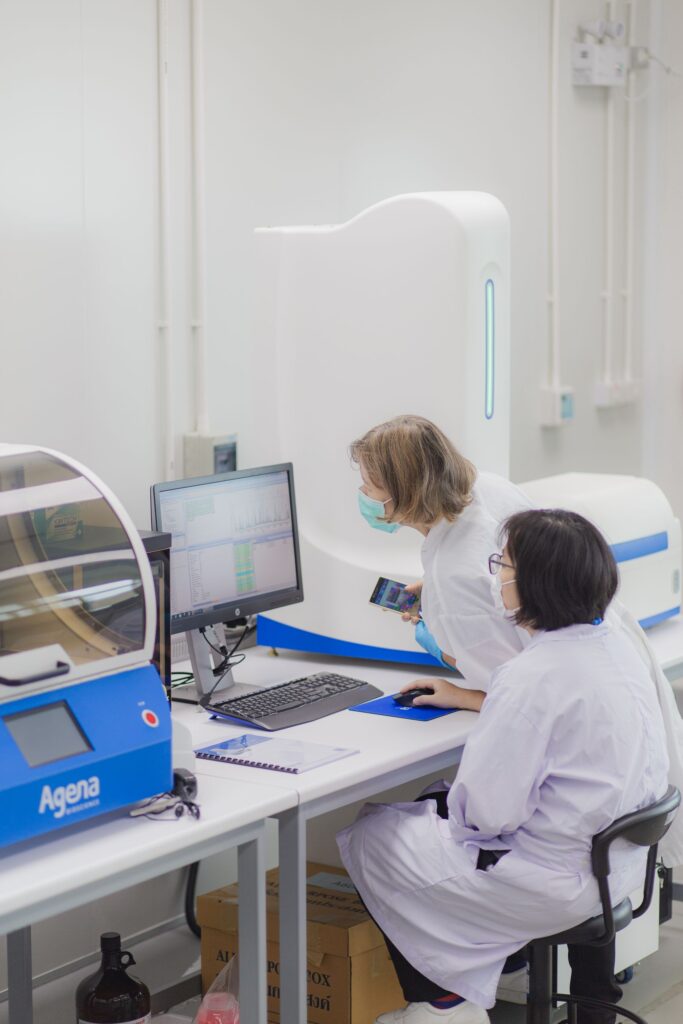+66 2 5646700 Ext 71441 | noc.th@nstda.or.th

ศูนย์โอมิกส์แห่งชาติ

ศูนย์โอมิกส์แห่งชาติ

Genomics
Focus on the area of structural, evolutionary and functional genomics of microbes, plants, and animals. Research on microbial genomes includes bacteria, insect-fungi, yeasts, metagenome sequencing and detection of variation in viral genomes. We also employ genomic technologies, such as RNA-sequencing, genotyping by sequencing, targeted enrichment sequencing, construction of BAC/fosmid libraries, to study complex eukaryotic organisms such as oil palm (Elaeis spp.), rubber tree (Hevea brasiliensis), cassava (Manihot esculenta), mungbean (Vigna radiata), maize, eucalyptus and black tiger shrimp (Penaeus monodon).

DNA sequencing
We employed short-read and long-read sequencing technologies such as Ion Torrent, Illumina, MGISEQ, and PacBio Sequel to study genetic variations. We have experience in handling large sequencing data sets for de novo genome assembly, reference mapping, gene annotation, and comparative genomics.
High Molecular Weight DNA library construction
Fosmid/ BAC libraries and 20kb-PacBio libraries are routinely constructed in the lab.
Genotype by sequencing
Genotyping-by-sequencing (GBS) techniques such as reduced representation library (RRL) sequencing, targeted enrichment sequencing or amplicon sequencing have been used to study genetic variation in populations. Linkage phase can be analyzed with phenotypic data to find a correlation between genotype and phenotype and then develop markers for genetic improvement programs.
Marker development
We employ a genotyping-by-sequencing technique to discover and genotype single nucleotide polymorphism (SNP) markers in individuals from bi-parental crosses or germplasm collections and carry out marker-trait association analyses to identify SNP markers linked to important agronomic traits.
Seed purity test
We provide a quick and accurate DNA-based purity testing service for a variety of F1 hybrid seeds such as corn, cucumber, watermelon, chili pepper, tomato, melon, and bitter gourd. We customize our single nucleotide polymorphism (SNP) markers to ensure that they can differentiate closely related cultivars. With our ultra high-throughput SNP genotyping platform, we are capable of genotyping several thousand samples a week.
Clonal identification
We offer a clonal identification service and provide a SNP-based DNA fingerprint profile for each individual tested. We employ a genotyping-by-sequencing technique to obtain a genome-wide SNP pattern from each sample. This technique allows us to distinguish closely related varieties or strains.

Quantitative trait loci (QTL) Mapping/ Genome-Wide Association Studies (GWAS)
We provide SNP genotyping services for cultivar identification and marker-trait association analyses such as quantitative trait loci (QTL) mapping or genome-wide association analyses (GWAS).